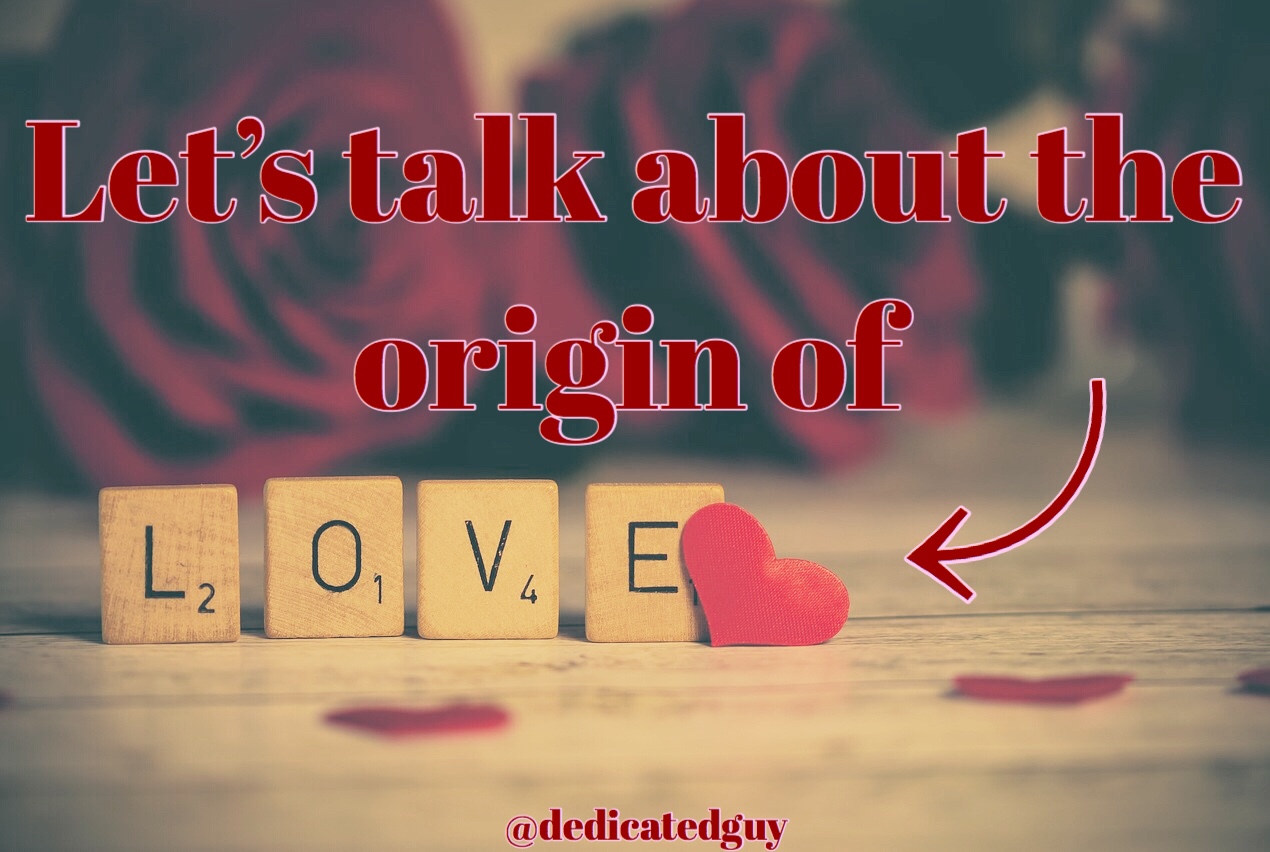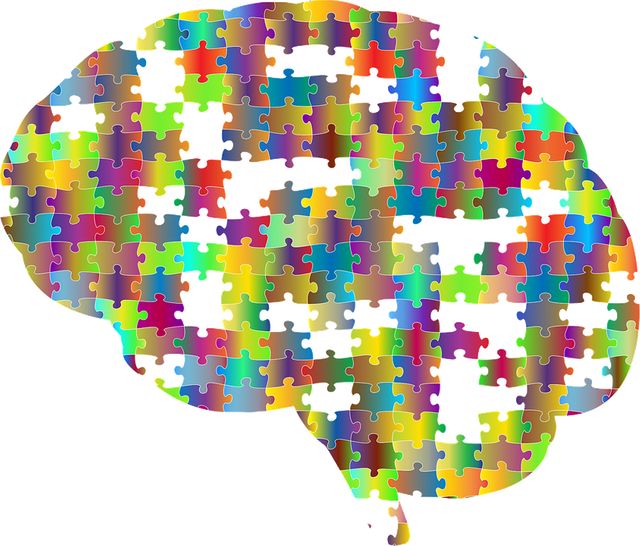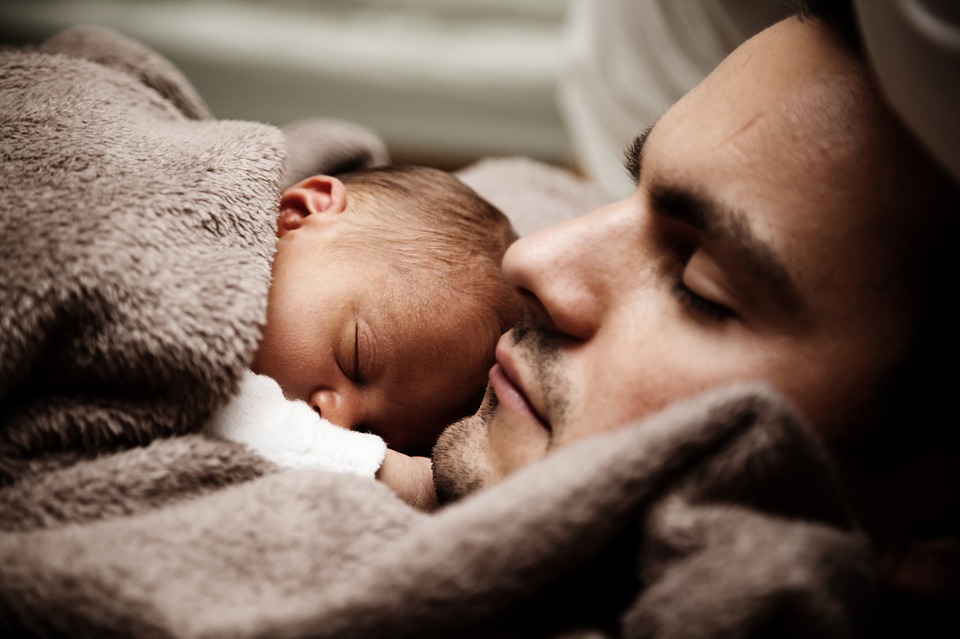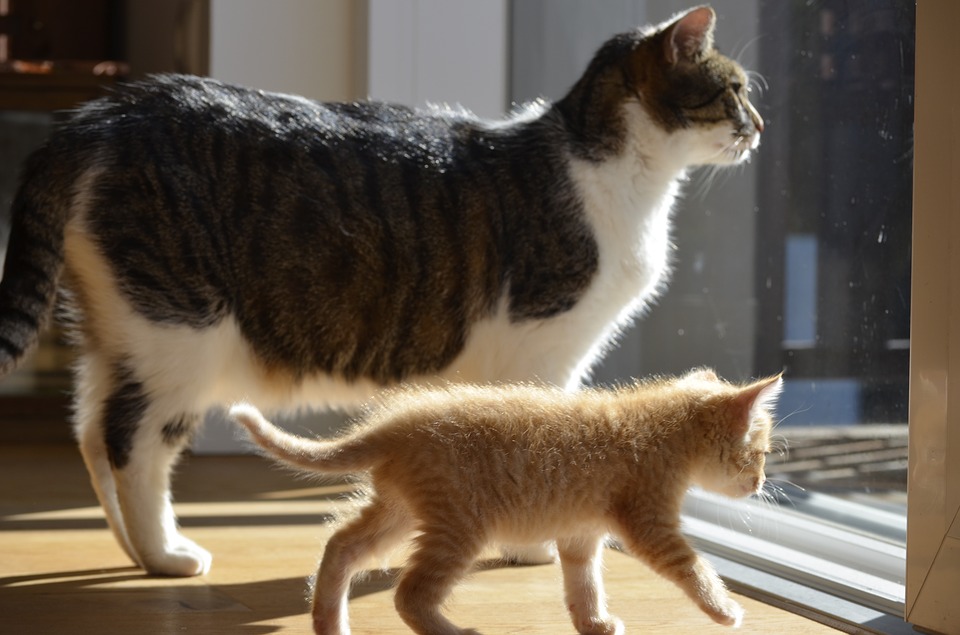Today’s lesson: Why do we feel love? What is its origin?

Another chapter in the "Today's lesson" series, in this opportunity we are going to talk about our most powerful feeling, which is Love, and how its origin is related to science.

Without a doubt, one of the most intense feelings of us humans being is what we call "love", a feeling that can be defined in several ways, since in certain situations it is defined as "loving our partner romantically" or "loving a children ", and finally something like "love whatever you like to do".
However, we can say that things like "love whatever you like to do" is a feeling somewhat different from the traditional concept of love, and that would fit better if we instead express this with phrases like "do whatever we like to do", so today I will mainly talk about the love that we feel towards another person, be it "romantic" love towards a partner or "family" love towards children, parents or siblings, among others.
First of all, it is important to understand that although "love" can be seen as something abstract, that does not mean its origin cannot be located, both physiological and historical. Besides it can also be quantified subjectively in various ways (by means of statistics and surveys in relation to a specific definition of love).
That means that love is not something that science is unable to explain.

What are the origins of this feeling?
There is a branch of science called "Evolutionary Psychology" that consists in studying this type of things. This is a branch that tries to explain the origin of the behavior of any species, from an evolutionary perspective, usually asking a question like "what evolutionary advantage was the one that caused the genes necessary for such behavior to spread in a population?".
Evolutionary Psychology proposes that the human brain comprises many functional mechanisms, called psychological adaptations or evolved cognitive mechanisms designed by the process of natural selection. | Source

And that allows us to find a clue to its historical origin in our brains, and its purpose.
It turns out that love and desire activate specific but related areas in the brain. The researchers found that two brain structures in particular, the insula and the striatum, are responsible for tracking the progression from sexual desire to love. The insula is a portion of the cerebral cortex folded deep within an area between the temporal lobe and the frontal lobe, while the striatum is located nearby, inside the forebrain. | Source
Since in this article we are just talking about love, the explanation is simple, and has to do with the preservation of our species (as is generally the case with these subjects)
It happens that the feeling of lovingly attraction towards another human being, similar to the feeling of sexual attraction, is a potent tool to make the species endure the test of time, and I offer you an example below.
Let’s imagine ourselves 90,000 years ago in the past, in the early days of modern humans, and let's focus on the lives of two new families, where each of them have a father, mother and 2 children.
Now let’s imagine that some sort of mutation, endowed one of the parents of those two groups with an intense and deep feeling of love towards their children, a gene that for simplicity purposes we will assume that the other parents do not yet possess.
By not having such a mutation, the other parents, who do not have such a gene, end up ignoring their children, and continue their lives looking for other directions and other things to do. This makes their children much more helpless against viruses, hunger, enemy hunters, and every other danger there is.

The parent who has this very special gene (at the time), feels something strong within himself that prevents him from ignoring his children, and does everything in his power to protect them from hunters, to feed them so they do not die of hunger, and to generally take of any bites, scratches and sicknesses (which in those days, incredible as it may seem, was a common cause of death, since the average age of the human being in those times was less than 18 years old).
In other words, we can say natural selection is one of the reasons why we have the feeling of love.
What is natural selection?
It is the process by which forms of life having traits that better enable them to adapt to specific environmental pressures, as predators, changes in climate, or competition for food or mates, will tend to survive and reproduce in greater numbers than others of their kind, thus ensuring the perpetuation of those favorable traits in succeeding generations. | Source

What is the net result of this?
Well, as you can imagine, the children of the parent who managed to develop this feeling, are much more likely to grow up and become adults, and eventually reproduce, compared to the other "unloved" children. This has as a result that the gene of love replicates in the children who grew up, and therefore, that gene begins to spread rapidly since those that contain it perpetuate the species in a much more efficient way, particularly due to the fact that they live longer, and therefore have more relationships to spread the genes they inherited from their parents.

Applying this perspective, it is no surprise that this feeling is triggered in a place very close to the region responsible for sexual pleasure, because this gene must reward the person with psychological pleasure for doing the “job” of providing love, something we all experience instinctively every time you hug a loved one and we feel that we protect and care of them.
Nevertheless, after sharing this explanation, it should not affect the feeling of love that we all possess, because that feeling is as real as its origin, and as you can imagine this feeling is not unique to the human being, since it is present in every species that cares for its descendants, and this is certainly one of the reasons those species are still alive today.

Conclusion
We are biological machines in a constant search for improvement and survival. Most of the way our brain is designed is because of circumstances that are no longer common thanks to our technological innovations, but since biological evolution is much slower, we can now study ourselves and the way we behave, and try to find explanations by looking into our past.

Things like teamwork, sharing, and of course, feeling love, are all tendencies that allowed us to survive back in the day, and are still positive attributes that brings us immense value even today. This is an example of the wisdom Mother Nature has when choosing which mutations end up perpetuating in time.
Therefore, if we want to understand ourselves, the best approach is to do this from a scientific perspective. This is the only way to find proper answers for any questions we have, and it always follows logical arguments.
What do you think of love? Do you think its origins are different than the ones I just shared with you?
Why do you think we have develop a feeling as strong as love?
Do you think in 1000-2000 years into the future (or even much more), we will develop new feelings that don't exist in this present time?
References
psychologytoday – love and brain
sciencedaily – evolutionary psychology
dictionary – natural selection
yourgenome - mutation
Image sources
All images are from pixabay

If these titles sound interesting to you, I assure you the articles will be even better!

"A Day in the Future": An artificial personal assistant… inside our head
Diogenes syndrome: my family case (with Steem exclusive pics)
Thoughts about our different ways of reasoning and their effect on our bodies
Thoughts about the stereotype of rational people being incompatible with feelings
Empty Nest Syndrome, an epidemic in Venezuela.
Being A SteemStem Member
Your post has been selected as #adsactlyspostoftheday :)
Join us in our Discord channel here to drop your post in our post promotion page, and make sure to use the @adsactly tag in the post itself.
Thanks @princessmewmew !!
Great topic, and thanks for the thorough research. I just gave you a thumbs up on Jerry's resteem discord to hopefully help him see it.
I agree with so much of what you've written here and would simply add, love is who we are. It is the first spark of our existence. Not the love of our parents, which may or may not be there. But the love of our eternal nature, which knows us as a part of itself and loves itself perfectly.
Love can be so strong that it can indeed define who and how we are.
Now this phrase is great:
Love can be seen as the ultimate tool to protect life, no matter the place or the time.
Ooh, just upvoted your comment and see that I'm out of steem power for the day! Well appreciated it despite the lack of any change to the amount LOL.
Great post! I think love and empathy are two indispensable things that are needed to survive, since that's what make us fight for someone and protect our family. I also write educational content and your these kind of articles inspire me to improve, keep it up!
Thanks for the kind words!
Nice thought.
Just a warning: when talk about human evolution and make distinctions between human parents who take care of their children and parents who don’t, you are taking a dangerous path.
Human beings are not created from nothing, in fact we are the product of an evolution that started some billions years before.
As you state in the article, even animals take care of their pets, so the real origins of this feeling come from long time before the first Homo Sapiens appeared on the Earth.
But if we talk about the origins of Love as a feeling, and not an instinct, then we need to take a step further...
We feel Love thanks to a feature only Human Beings have, as far as we know, that is self-awareness.
We are conscious that we are conscious.
We not only feel the need to take care of our children: we are also aware of it.
And when we add an extra layer to our life, then we have more chances to have it broken, as many other layers may overlap this feeling.
That is, there are many parents who don’t take care of their children and let them die, a feature sadly unique to Human Beings.
You are totally right my friend. Self-awareness is also an important aspect when explaining why we behave the way we do, the same goes to how we act and think.
I think one of the most difficult things to achieve when creating AI is coding self-awareness into them. This is a tricky subject for sure.
Indeed it’s a very tricky subject!
The real issue here is: we still don’t understand what consciousness is, and how it originates.
There are many theories from philosophy, psychology, neuroscience, but none is clear and easily applicable to a software.
Until now, the best solution I’ve seen is what I call “the one way soultion”: it doesn’t matter whether the machine has consciousness or not.
What matters is that the user, the human being who interacts with the machine, perceives it as human.
It works, as replicating the human behaviour is becoming more and more easy and accurate.
What does science need to say in regards to the starting points of affection in the plan of things? Not a considerable measure. Truth be told, it is still for all intents and purposes a forbidden subject, similarly as awareness was until as of late. In any case, since sentiments are a noteworthy part of cognizance, it appears to be likely that the philosophy of adoration is currently prone to develop as a critical inquiry in science.
Inside Christian culture, as in numerous different religious customs, cherish has its starting point as a primal nature of God as is co-everlasting with Him. His creation is an overflowing of this adoration in imparted relationship to creatures that take an interest in the basic innovativeness of the universe. As in the realm of Shakespeare and the Renaissance Magi, it is love that drives the world as we know it and invigorates all connections.
This otherworldly perspective of the world did not fulfill the developing point of view of Galilean science, which saw connections in nature as law-like, obeying self-reliable coherent standards of request. God may well have made the world, however he did as such as per coherent standards. It is the activity of the researcher to recognize these and depict them in scientific frame. Thus with Newton, cherish transformed into gravity. The turn of the earth around the sun, and the moon around the earth, was an aftereffect of the opposite square law of gravitational fascination. It was not an appearance of affection as an appealing standard between enlivened creatures, however much mankind stayed joined to sentimental emotions about the full moon. Love was hereafter ousted from logical talk and the mechanical world-see assumed control.
The main feeling of our lives !!!
I really LOVED this perspective and entry @dedicatedguy , thanks for sharing your positive post story in my #popcontest ! Awesome explanation of love and its origins ! Bravo !! Upvoted and resteemed , Good Luck !!👍😀💕💕💕💕💕💕💕💕💕💕💕💕💕💕💕💕💕💕💕💕💕💕💕💕

this is an amazing post. i appreciate your post dare. keep it up!! thanks for sharing
Wow interesting topic and great thoughts you brought up that need some pondering. The one aspect you did not touch on is the spiritual. Some say that you love someone because you knew them before you got here and their spirit is aligned with yours. this might account for why we sometimes love someone with seemingly no good reason. Maybe it is outside of the physical and emotional and even as you mention, the area of biological mutations. Thanks for the post.